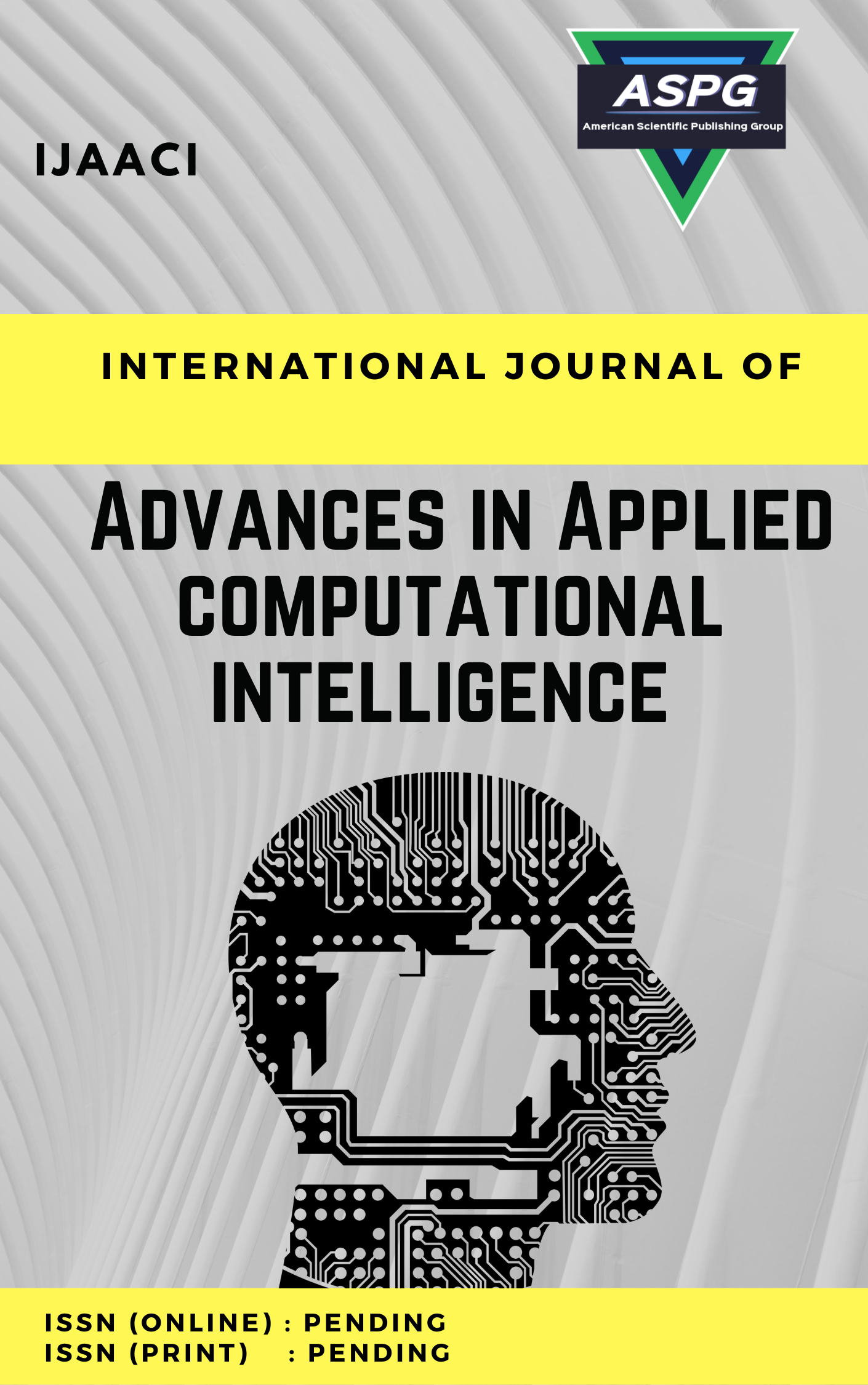

Volume 1 , Issue 2 , PP: 30-45, 2022 | Cite this article as | XML | Html | PDF | Review Article
Ismail Eyad Samara 1 *
Doi: https://doi.org/10.54216/IJAACI.010202
In recent years, Intelligent systems and AI techniques have advanced significantly, thanks to breakthroughs in deep learning, reinforcement learning, and related fields. These advancements have led to the development of more efficient and accurate systems, including computer vision, natural language processing, and autonomous systems. The future of intelligent systems and AI techniques involves further improvements in deep learning, explainable AI, transfer learning, and human-AI collaboration. As these systems continue to be adopted, they have the potential to revolutionize our lives and create new opportunities for progress. However, ethical concerns such as bias and privacy must be addressed, and future research should focus on developing more secure systems and integrating these technologies with emerging technologies like quantum computing and blockchain. Overall, the field of intelligent systems and AI techniques is primed for continued growth and innovation, offering exciting possibilities for solving some of the most pressing challenges of our time.
Intelligent systems , AI techniques , deep learning , quantum computing , Blockchain , human-AI collaboration
[1] Mittal, S., & Jain, R. (2019). Artificial intelligence in social media. In Handbook of Research on Social Media Applications for the Tourism and Hospitality Sector (pp. 277-295). IGI Global.
[2] T.A. Byrd and R.D. Hauser, “Expert systems in production and operations management: research directions in assessing overall impact,” Int. J. Prod. Res., Vol. 29, pp. 2471-2482, 1991.
[3] B.G.W. Craenen, A.E. Eiben, “Computational Intelligence,” Encyclopedia of Life Support System, EOLSS Co. Ltd., http://www.eolss.net, 2003.
[4] Shickel, B., Tighe, P. J., Bihorac, A., & Rashidi, P. (2018). Deep EHR: A survey of recent advances in deep learning techniques for electronic health record (EHR) analysis. IEEE Journal of Biomedical and Health Informatics, 22(5), 1589-1604.
[5] El Emam, K., Jonker, E., Arbuckle, L., Malin, B., & Pompa, J. (2020). Artificial intelligence in health research and healthcare: National survey of attitudes and practices among Canadian stakeholders. Journal of the American Medical Informatics Association, 27(6), 845-854.
[6] R.C. Eberhart and Y. Shui, Computational Intelligence - Concepts to Implementations, Elsevier, 2007.
[7] D. Fogel, “Review of computational intelligence imitating life,”IEEE Transactions on Neural Networks, Vol. 6, pp. 1562-1565, 1995.
[8] Dignum, V., & van den Hoven, J. (2019). Responsibility by design for AI. Ethics and Information Technology, 21(1), 1-3.
[9] K. Krishnakumar, “Intelligent systems for aerospace engineering – an overview,” NASA Technical Report, Document ID: 20030105746, 2003.
[10] R. Marks, “Computational versus artificial,” IEEE Transactions on Neural Networks, Vol. 4, pp. 737-739, 1993.
[11] I.J. Rudas, Hybrid Systems (Integration of Neural Networks, Fuzzy Logic, Expert Systems, and Genetic Algorithms), In:Encyclopedia of Information Systems, Academic Press, pp. 114-1 - 114-8, 2002.
[12] I.J. Rudas and M.O. Kaynak, “Techniques in Soft Computing and their Utilization in Mechatronic Products,” In: C.T. Leondes, Ed., Diagnostic, Reliability and Control System Techniques, Gordon and Beach International Series in Engineering, Technology and Applied Science Volumes on Mechatronics Systems Techniques and Applications, Vol. 5, Singapore, pp. 101-138, 2000.
[13] S. Russell and P. Norvig, Artificial Intelligence: A Modern Approach, Prentice Hall, New Jersey, 1995.
[14] L.A. Zadeh, “Fuzzy Logic and Soft Computing: Issues, Contentions and Perspectives,” In: Proc. of IIZUKA’94: Third Int.Conf. on Fuzzy Logic, Neural Nets and Soft Computing, Iizuka, Japan, pp.
1-2, 1994.
[15] Hagendorff, T. (2020). The ethics of AI ethics: An evaluation of guidelines. Minds and Machines, 30(1), 99-120.
[16] Kitchin, R. (2014). Big Data, new epistemologies and paradigm shifts. Big Data & Society, 1(1), 2053951714528481.
[17] Gartner. (2021). Top 10 data and analytics technology trends that will change your business. Retrieved from https://www.gartner.com/smarterwithgartner/top-10-data-and-analytics-technology-trends-that-will-change-your-business/
[18] Tassey, G. (2018). The impact of artificial intelligence – widespread job loss. Journal of Business and Economic Policy, 5(2), 23-30.
[19] Rudin, C. (2019). Stop explaining black box machine learning models for high stakes decisions and use interpretable models instead. Nature Machine Intelligence, 1(5), 206-215.
[20] Bartneck, C., Lütge, C., Wagner, A., & Welsh, S. (2020). Privacy issues of ai. An Introduction to Ethics in Robotics and AI, 61–70. https://doi.org/10.1007/978-3-030-51110-4_8
[21] Biamonte, J., Wittek, P., Pancotti, N., Rebentrost, P., Wiebe, N., & Lloyd, S. (2017). Quantum machine learning. Nature, 549(7671), 195-202.
[22] Gunning, D. (2017). Explainable artificial intelligence (XAI). Defense Advanced Research Projects Agency (DARPA).
[23] Hinton, G. E. (2012). Deep neural networks for acoustic modeling in speech recognition: The shared views of four research groups. IEEE Signal Processing Magazine, 29(6), 82-97.
[24] Jurafsky, D., & Martin, J. H. (2021). Speech and language processing (3rd ed.). Pearson.
[25] LeCun, Y., Bengio, Y., & Hinton, G. (2015). Deep learning. Nature, 521(7553), 436-444.
[26] Liu, J., Li, Y., Zhao, D., & Zhang, M. (2019). Multi-agent systems and their applications. Wiley Online Library.
[27] Russell, S. J., & Norvig, P. (2022). Artificial intelligence: A modern approach (4th ed.). Pearson.
[28] Shi, W., Cao, J., Zhang, Q., Li, Y., & Xu, L. (2016). Edge computing: Vision and challenges. IEEE Internet of Things Journal, 3(5), 637-646.
[29] Sutton, R. S., & Barto, A. G. (2018). Reinforcement learning: An introduction (2nd ed.). MIT Press.